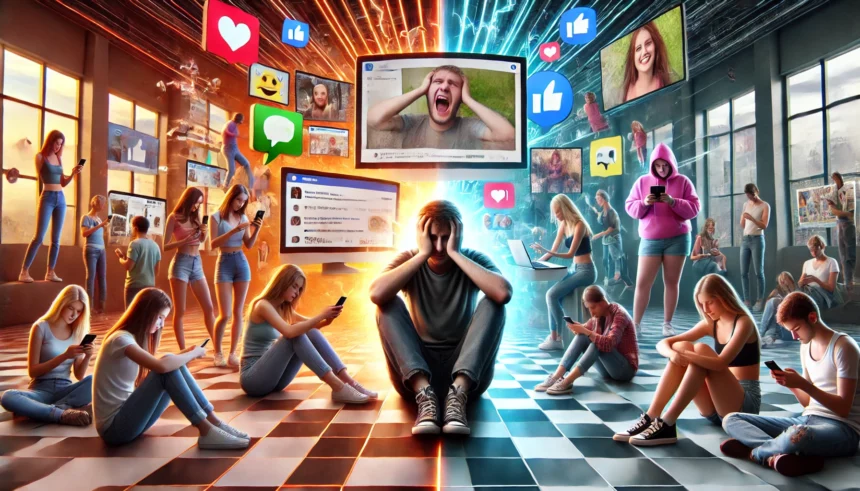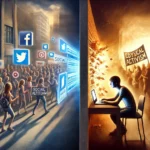Social media is part of everyday life for many people. Whether it’s scrolling through Instagram, checking Facebook, or watching YouTube videos, it’s hard to avoid. But have you ever wondered how all this screen time affects your mental health? Let’s dive into the positive and negative effects of social media on mental well-being.
The Dual Impact of Social Media on Mental Health
1. Depression and Anxiety
Social media can contribute to depression and anxiety, especially among young adults. Here’s why:
- Artificial Connections: Online interactions don’t provide the same benefits as face-to-face ones.
- FOMO: Fear of missing out can make you feel excluded when you see posts of events you weren’t part of.
- Comparison Trap: Seeing others’ highlight reels can make your own life seem less exciting.
2. Addiction
Social media can be addictive, triggering the same pleasure centers in the brain as drugs or alcohol. You might be more at risk if you:
- Spend excessive time on social media.
- Have high anxiety or low self-esteem.
- Use social media as a coping mechanism.
3. Social Connection
On the positive side, social media offers a way to stay connected with friends and family, especially those who live far away. It can:
- Enrich in-person relationships.
- Help you find communities with shared interests.
- Provide support networks during tough times.
4. Body Image Issues
Platforms like Instagram can negatively impact body image by promoting unrealistic beauty standards. Edited and filtered images can lead to:
- Self-judgment and dissatisfaction.
- Harmful trends like “fitspiration” that might not always encourage healthy habits.
5. Eating Disorders
Negative body image can contribute to eating disorders. Social media might:
- Increase the risk of disorders like anorexia and bulimia.
- Promote harmful communities that encourage extreme weight loss practices.
6. Promoting Body Positivity
Conversely, social media can also foster body positivity by:
- Showcasing diverse body types.
- Encouraging acceptance of one’s body as it is.
- Linking body positivity to better emotional well-being and healthier habits.
7. Cyberbullying
Cyberbullying is a significant negative aspect of social media. It includes:
- Posting hurtful or false content.
- Making threats or stalking.
- Sharing private information to humiliate others. Cyberbullying can lead to emotional distress, depression, anxiety, and even suicidal thoughts.
8. Destigmatizing Mental Health
Social media can also be a powerful tool for mental health awareness by:
- Sharing personal stories and recovery journeys.
- Making it easier to talk about mental health issues.
- Encouraging people to seek help.
Which Platforms Are the Worst for Mental Health?
Image-heavy platforms like Instagram are often cited as the most harmful, particularly for body image issues. However, each platform has its unique risks and benefits. It’s crucial to be mindful of how you use social media and the impact it has on you.
Tips for a Healthier Relationship with Social Media
- Limit Screen Time: Cut down on the amount of time you spend on social media.
- Be Selective: Stick to one or two platforms that make you feel good.
- Mindfulness: Pay attention to your emotions while using social media.
- Unfollow Negative Accounts: Remove or block content that makes you feel bad.
- Digital Detox: Take regular breaks from social media to refresh.
- Engage in Other Activities: Find other hobbies or activities that bring you joy.
Final Thoughts
Social media has a mixed impact on mental health. While it can cause depression, anxiety, and body image issues, it also offers opportunities for connection, support, and spreading positivity. By being mindful and setting limits, you can enjoy the benefits of social media while minimizing its downsides.
















